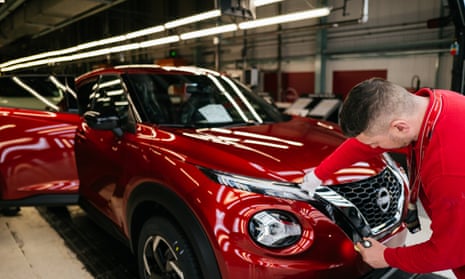
Nissan to cut 9,000 jobs globally after sinking to a loss
Production capacity at Japanese carmaker will be reduced by 20% and sales budgets cut
Nissan has announced it will cut 9,000 jobs from its global workforce as part of “urgent measures” to stem losses.
The Japanese car manufacturer said it would also reduce global production capacity by 20% and cut its sales budgets after it slumped to a loss in the three months to the end of September.
Carmakers around the world have been struggling with falling demand for vehicles in key markets, while also competing with Chinese competitors on electric vehicles in particular.
The announcement will cause uncertainty for the company’s 130,000-strong workforce. However, it is thought the UK factory in Sunderland is unlikely to be affected.
The company lost 9bn yen (£45m) in the quarter, compared with a 191bn yen profit in the same period last year. It also revised down its sales and profit forecast for the second time this year.
The company said it was facing a severe situation as it battled with higher costs for sales and in its factories, as well as having too many cars with dealers in the US in particular, which can force the company to give steep discounts.
Makoto Uchida, Nissan’s chief executive, said he would forfeit half his monthly salary from November while making the cuts.
He told a press conference on Thursday that the company had failed to foresee an increased demand for hybrid cars in the US in particular. Hybrids, sometimes referred to as hybrid electric vehicles (HEVs), combine an internal combustion engine with a small battery, giving a limited reduction in carbon pollution relative to traditional cars. Hybrids have gained in popularity amid high fuel prices.
“We didn’t foresee HEVs ramping up this rapidly,” he said. “We did start to understand this trend towards the end of last fiscal year.”
Nissan said it wanted to get to a point where it would be profitable if it sold 3.5m cars a year. It sold 3.4m in the year to March.
after newsletter promotion
Nissan runs the UK’s biggest car factory in Sunderland, which has the capacity to build as many as 600,000 cars a year but only produced 325,000 in 2023. However, managers in the UK have indicated they do not believe the factory will be affected, according to a person briefed on the situation.
The company also has a sales operation in Hertfordshire, a technical centre in Cranfield, Bedfordshire, and a design office in London.
Nissan declined to say which parts of the business would be affected.